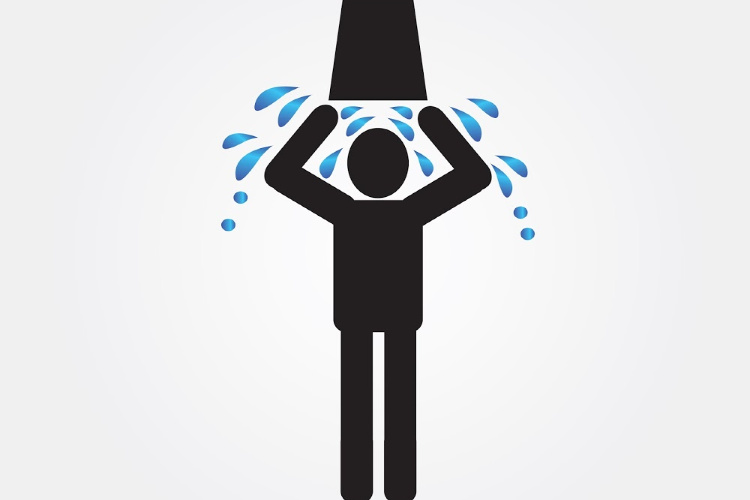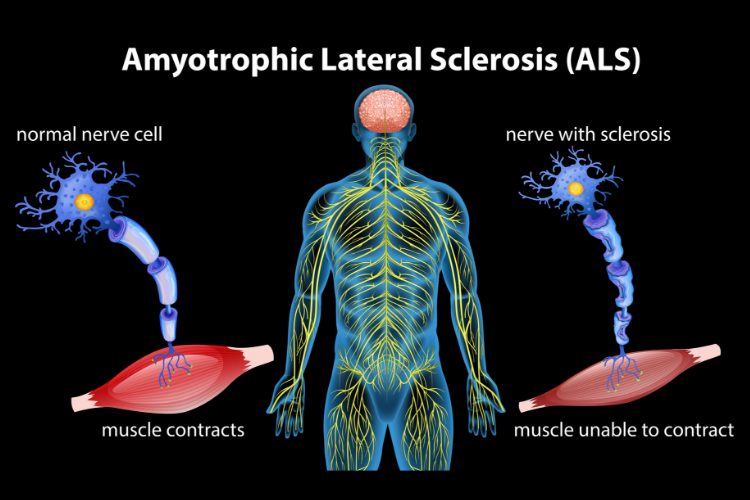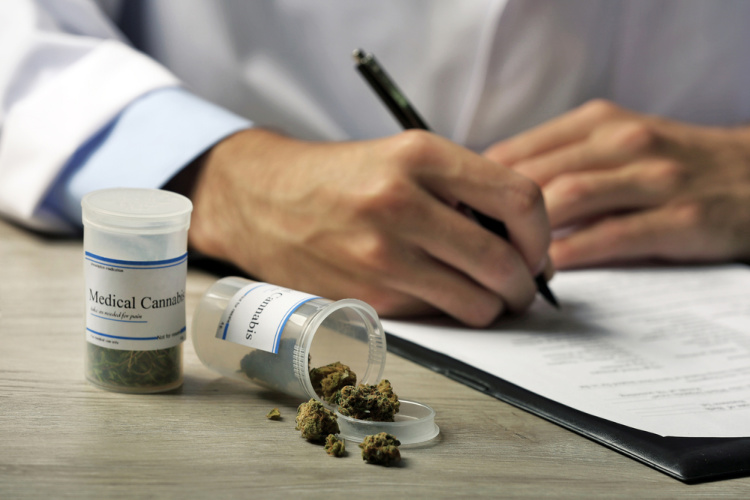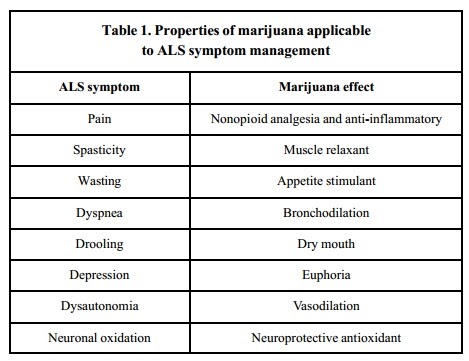Remember when you couldn’t log onto social media without seeing someone dump a bucket of ice water over their heads for a good cause? The famous Ice Bucket Challenge helped raise awareness and research funds for the devastating disease called ALS. We hope some of those funds go to further investigate the relationship between cannabis and ALS.

ALS is also known as “Lou Gehrig’s disease,” named after the famous baseball player who built a heroic reputation for playing through his physical limitation. This neurodegenerative condition causes the muscles to waste away and has no cure — but there is hope. In this article, we will cover ALS and how cannabis can relieve symptoms and help stop the disease from progressing.
What Exactly is ALS?
Amyotrophic lateral sclerosis (ALS) is a degenerative neurological disease that involves the neurons (nerve cells) that control voluntary muscle movement. These voluntary muscles are responsible for actions like talking, walking, and chewing. ALS is a progressive disease that gets worse with time. There is no cure for ALS, and there aren’t any proven treatments to reverse or slow its progression.
ALS is part of a group of disorders called motor neuron diseases, which are characterized by the deterioration and death of these neurons. Nerve cells connect the brain and spinal cord to muscles all over the body, providing communication links between the brain and all the voluntary muscles. When motor neurons start to degenerate and die over time, messages aren’t sent to the muscles. Without the ability to function, the muscles begin to weaken, twitch, become paralyzed, and waste away. The brain eventually loses the ability to control voluntary movements, and the muscles deteriorate, which can lead to many debilitating symptoms including respiratory failure.

The most common symptoms of ALS are muscle stiffness and weakness. As the disease progresses, patients lose the ability to move, eat, speak, and sometimes even breath. Many ASL patients also suffer from depression that develops from a reduced quality of life.
Over 30,000 Americans are affected by ALS, but we still don’t know exactly how it is caused.
While there is no cure for ALS, there are medications used to reduce nerve damage and to try and slow the decline of function. Other drugs are used to treat the symptoms of ALS like stiffness, drooling, depression, sleep problems, constipation, and uncontrolled episodes of crying or laughing. The effectiveness of these medications can vary, and they often cause uncomfortable side effects.
Can Cannabis Treat ALS?
Cannabis has been used to bring relief from the symptoms of ALS for a long time, and researchers are finding it may even slow the progression of the diseases. The nerve damage associated with ALS happens through a combination of excitotoxicity and oxidative stress. Cannabis has the potential to address both of these issues.

Cannabis has been a known antioxidant for a long time and can help decrease the nerve damage caused by too many free radicals within the body. Along with being a powerful antioxidant, cannabis also provides neuroprotection that can spare the neurons from the excitotoxicity caused by injured nerve tissue. The neuroprotection cannabis offers may be able to slow the damage that leads to cell death.
A 2004 animal study found that cannabinoids were able to slow the motor impairment and prolong survival in individuals with motor neuron cell damage. Researchers concluded that the cannabinoid treatment reduced both oxidative damage and excitotoxicity. Other studies have looked at the neuroprotection benefits of cannabis for ALS patients, with promising results. Researchers are currently studying how CB2 receptors can play a role in ALS progression and are working to understand how the endocannabinoid system is involved in reducing oxidative cell damage and neuroinflammation.
Cannabis and ALS: Managing Symptoms
While we are still learning how cannabis can help slow the progression of ALS, we do know that it can provide much-needed relief to many of its uncomfortable symptoms. Marijuana can help with issues like chronic pain, muscle spasticity, appetite, and sleep problems. A 2001 literature review in the American Journal of Hospice & Palliative Care found that many symptoms of ALS are treatable with cannabis and summarized their findings in this table:

Not only can cannabis help relieve physical symptoms, but it can also improve a patient’s psychological state. ALS can take a massive toll on mental health, and cannabis can help boost mood, reduce anxiety, and alleviate depression.
A 2012 survey of 48 ALS patients who used cannabis to alleviate symptoms found many positive benefits. Patients reported improvements in appetite, sleep, swallowing, mood, and better speech. These patients only reported a few side effects like a sore throat and red eyes, which can be avoided by other methods of cannabis use like edibles and topicals, rather than smoking.
With continued research on medical cannabis as a treatment for ALS, we will see a future with more options for patients and alternatives to prescription drugs without the side effects. If you have questions about whether medical cannabis may help you manage your condition, be sure to schedule an appointment.